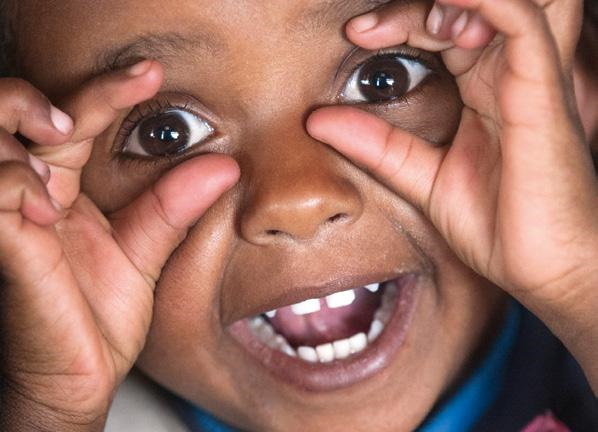Every human being from birth has the right to be nourished, yet in the world's most vulnerable communities for many people, especially children, it translates into hunger, malnutrition, undernourishment, words that are difficult to accept, to share, since they violate the right to life itself.
There are, in fact, millions of children in these countries who are victims of an inadequate food system, due to rampant poverty, wars, legacies of invasive colonization, geographic conditions lately severely compromised by climatic imbalances and, as in Covid-19, by health emergencies.
Thus, a gruesome scenario opens up before our eyes where acute malnutrition affects the most fragile children, suffering from severe organic wasting, who, unable to receive life-saving treatment in a timely manner, are at very high risk of death. Chronic malnutrition, on the other hand, prevents sufficient daily caloric intake, which is essential to make the immune system stronger, ensure more age-appropriate bodily and intellectual development, and tends to jeopardize the child's future. Many times, in fact, children with chronic malnutrition appear inactive, lacking in strength, and may also have major cognitive impairments.
When the state of malnutrition is prolonged over time, we speak of undernutrition, one of the most serious plagues in the world given that the absolute number of undernourished people continues to rise for the past 5 years.
In this specific case, to understand the severity and spread of the problem, we present data on the geographical areas most affected compare the data on the geographical areas most affected
Asia: 381 million undernourished people
Africa: 250 million undernourished people
Latin America: 48 million undernourished people
Data that, when compared with each other, will make it possible to understand why in terms of percentages Africa is the region most affected and most likely to be affected in the future, with 19.1 percent of the population affected by undernourishment.
These figures however should not remain just testimony to an irreversible situation, but a spur to eliminate poverty as envisioned by the UN 2030 Agenda for those people around the world who live on less than $1.25, ensure that all men and women, especially the poor and vulnerable, have equal rights regarding access to basic services, economic resources, access to basic services, property, natural resources, new and appropriate technologies, and financial services, including microcredit and microfinance.
Caritas Children is therefore committed, through its Distance Support, International Cooperation and Global Citizenship Education projects, to eradicating hunger on the one hand and raising awareness of these issues among young people in schools and the general public.


